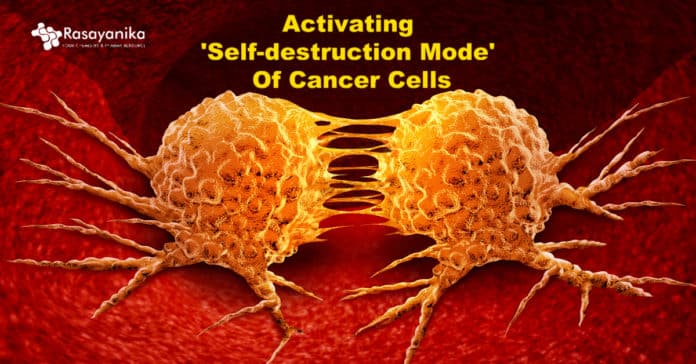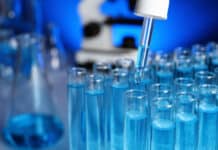Fungal compound activates self-destruct mode of cancer cells
A unique strategy is used by the cancer cells to propagate: Through mutation, they delete their “programmed death” gene, and relatively “forget” to die when their lifetime is over, and remain to multiply. A technique where a fungal compound capable of activating self-destruct mode by rearming the self-destruct gene in specific cancer cells that can be artificially manufactured in marketable amounts, giving a potential cancer treatment approach was developed by a study group from Tokyo University of Science.
Every human body cells have a specific life-span during which they execute their crucial responsibilities. They get to senescence at the end of this life-span and no longer will be able to carry out those roles, eventually, those cells die. This self-destructive death is programmed into the genes via a process called apoptosis, in order to give way for young, healthy cells to replace the old cells, apoptosis triggers them to self-destruct.
Disruption in this process can sometimes occur due to the anomalies in a unique gene called p53. These mutations triggered by aging, UV, and also different mutagenic compounds, can disable the apoptosis gene, resulting in “zombie” cells that don’t die and continue
to divide, spreading the disabled gene and replacing healthy working cells with tumors that undying, and swiftly growing. This is cancer cells, and it takes many forms based on which body cells develop the mutations.Formerly, researches found FE399 – an anticancer substance in a species of filamentous fungi called Ascochyta, usually found affecting common food plants. The compound is a certain kind of depsipeptides – a sort of amino acid group and in Vitro, it was also shown to induce apoptosis in malignant human cells, particularly colorectal cancer, verifying its worth as an anti-cancer compound.
However, it is not easy to purify FE399, which prevented any kind of plan for its widespread application in cancer treatment, due to a variety of chemical complexities. Hence it was clear that naturally extracting FE399 from the fungi would not be a commercially viable approach, and the research study into this particular compound was halted despite the assurance of powerful anti-cancer medicine.
The pledge of a new anticancer therapy was tempting, nonetheless, the challenge was accepted by the Prof Isamu Shiina, Dr. Takayuki Tonoi, and his group from the Tokyo University of Science. Prof Shiina said, “We wished to develop a lead compound that could treat colon cancer, and also we intended to do this through the complete synthesis of FE399”. The procedure of the complete chemical synthesis (production) of an intricate molecule utilizing commercially available precursors, permitting mass production is total synthesis.
The outcomes of the research will be published in the European Journal of Organic Chemistry – a peer-reviewed scientific journal covering organic chemistry.
Initially, the group figured that the framework of the depsipeptide would require to be determined. This was easy as well as could be conveniently done using commercially available as well as cost-effective products. The succeeding processes required lots of steps and also when isomers were unsuccessfully isolated, it caused some failures.
But, the researchers were rewarded for their initiatives when, their mass spectrometry, as well as nuclear magnetic resonance researches in a significant innovation, validated that a triad of spots on a plate showed the same chemical signature to the known formula of FE399, suggesting that they had effectively recreated synthetic FE399.
A total yield of 20% was found in this method, which is fairly appealing for future mass productions. Prof Shiina said, “We wish that this compound can provide an unprecedented therapy option for individuals with intestines cancer, and hence enhance the total outcomes of the condition and inevitably enhance their lifestyle”.
To evaluate the performance of FE399 in the treatment of various other solid as well as blood-based cancers further research is needed. The framework of the FE399 molecule and biological activities will need to be examined prior to large-scale production. However, as of now, the team from Tokyo University of Science is excited about their findings, and are hopeful that their research will certainly help to boost treatments for colorectal cancer.
Author: Sruthi S

















































